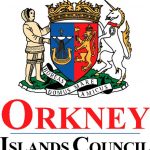

Community council role could provide ‘taste for local politics’ as nomination deadline nears

There’s less than one week to go until the close of nominations for the community council elections, and Orkney Islands Council is urging people to submit their application forms.
People have until 5pm on Wednesday, June 15, to submit their nominations to become a community councillor and play a key role in local politics and democracy.
Graham Sinclair, who stood down as an elected member in May, began local political life as member of the Stronsay Community Council — and would encourage anyone with eye on a future in local politics to do the same.
He said: “I was on the Stronsay Community Council for two terms many years ago. Although there was a bit of a gap then before I actually became an OIC Councillor, my time on the community council was certainly beneficial and undoubtedly gave me a taste for local politics and being involved in community issues.
“Becoming a community councillor is a really good way to gain an understanding of what the big issues are for the community — you might think you know what’s bugging folk but it can be a bit of an eyeopener when you hear and see the issues that are being brought forward. As a community councillor you’re acting on behalf of the community — but importantly you’re also gaining a better understanding of it in the process.”
Community councils play an important role in local democracy by representing local views which can influence decisions in planning and the provision of local services.
The community councils provide an effective, strong voice within each community area offering sound, local advice on a range of community issues.
Orkney Islands Council consults and depends on information and views from community councils, and these are used in shaping local authority policies. Community councils are regularly consulted by other public agencies on a wide range of community related issues.
Graham believes there’s room for folk from all walks of life on the local community councils.
He added: “A community council can — and should — be made up of a variety of interests and characters. The main thing is that these folk should be good at listening and watching what’s going on, so that they can put forward the best interests of the community — there really is no better organisation within the community to speak on its behalf than the community council.”
Councillor David Dawson — who was re-elected to Orkney Islands Council in May and recently took on the role of chair of the development and infrastructure committee — also cut his political teeth at a community council — this time Kirkwall and St Ola.
David said: “It would be a complete disservice to say that the community councils are a lower tier of local democracy – in actual fact it can be the most effective on some issues, as it sits so close to the community — as a community councillor you are attuned geographically to the local needs.
“As a result, community councils are listened to by elected members and by officers. My own personal view is that I’d like to see them given more decision-making powers — and more funding — in order that they can help even more with some of the local issues and be even better empowered to meet local needs.”
Each Community Council meets approximately every six to eight weeks and holds an average of seven meetings per year. Public or Special meetings are arranged, when necessary, to facilitate the discussion of controversial issues. Members of the public are entitled to attend and observe proceedings at any Community Council meeting.
Nomination forms are available from the Council website and must be returned to Democratic Services, Orkney Islands Council, no later than 5pm on Wednesday, June 15, 2022.